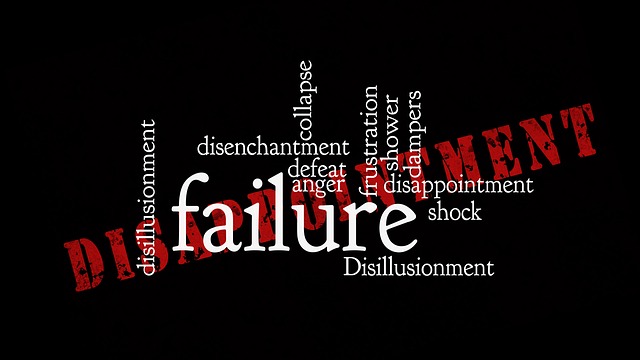
This guest post is written by a recent graduate in Neuroscience from the University of British Columbia who wished to be kept anonymous.
The story that I am going to tell here is not exactly the most glamorous one. During my graduate study, I failed to generate publishable results, had frequent arguments with my supervisor, and felt like I was worthless and helpless until the very end. The advice I will give in this post is based on the scenario when you are trapped in a laboratory with a toxic supervisor, and hopefully my advice here can help you avoid falling into the same kind of traps like I did.
Like the title suggests, maintaining motivation is one of the most difficult tasks to accomplish when the person next to you is constantly filling your mind with negativity. It is important that you prepare yourself to deal with harmful behaviors from your supervisors, because they can make you absolutely hate your graduate study and destroy your career. The advice I give graduate students who are dealing with toxic supervisors is to take their criticisms with a grain of salt. Students will undoubtedly hear belittling comments from their supervisors at some point during their graduate study, and it could be triggered by mistakes as trivial as forgetting to restock culture dishes in the cell culture room or errors made during experimental procedures. It is important students realize that nobody is perfect and that researchers (including supervisors) make mistakes on a daily basis. Do not allow your supervisors’ criticisms to dampen your love for research and make you miserable. If they scold you, the best thing to do is pretend that you accept the criticism and then forget about it as quickly as possible.
Almost a year after working in the laboratory I discovered that my supervisor had a poor track record in mentoring successful students and most of the problems I encountered during the program were due to his unsupportive approach and unfair expectations. It took me an entire year to realize this because I went into the graduate program assuming that every supervisor in the world had a decent amount of skill in training students, which turned out to be a grave assumption. When you are working in a laboratory, it is important to be skeptical of your supervisor’s ability, otherwise you can end up in a situation where you are spending time and effort on tasks that will never come to fruition, such as endlessly performing an experiment demanded by your supervisor even though the experiment is bound to fail. If your supervisor is making a scientific claim that you disagree with and can be disproved with contemporary scientific literature or even basic scientific knowledge, question it. If your supervisor belittles your competence or attempts to diagnose you with a psychological disorder, ignore it. If your supervisor criticizes your inability to generate the desired observation, think of an alternative explanation for your observation rather than blindly believing your supervisor. Follow their advice, but do not become their slave.
Many graduate students fall into the routine of performing experiments without properly evaluating their purpose and design. This can happen when students face heavy workloads, and consequently it can lead to a rapid loss of motivation. Conducting research without a proper grasp of its purpose is mentally and physically exhausting. Added to that, the pressure to produce results that fit in line with the supervisor’s previous findings can make for a difficult situation. The simple key to solving this problem is to read papers related to your field of research. It sounds simple and obvious, but many supervisors prefer their students to spend most of their time in the laboratory generating data, and treat them as employed research technician rather than mentoring them to become independent researchers. Reading papers can revitalize your motivation, help you appreciate the importance of all of your work and sacrifice, and train you on how to use the most important source of scientific knowledge. In retrospect, I had the most fun in my graduate study dissecting the results and discussing the implications of my favourite papers with my colleagues rather than chugging away at the microscope.
I hope the advice mentioned here can help those of you who are going into graduate study or those of you who are already in graduate study but have difficulty dealing with a tough supervisor. Competent supervisors who share similar life values and beliefs with students and can properly manage students’ learning are hard to come by, and in fact most people will never find their “ideal” supervisor. Because of this, the responsibility lies with the student to make the best out of a less-than-ideal situation. Overcome the hurdles and never give up.
Thank you to this student for reaching out and taking the time to describe their difficult situation in grad school. If you are a current grad student or recent graduate and would like to share your experience, check out this post to get the details on how to go about it.

